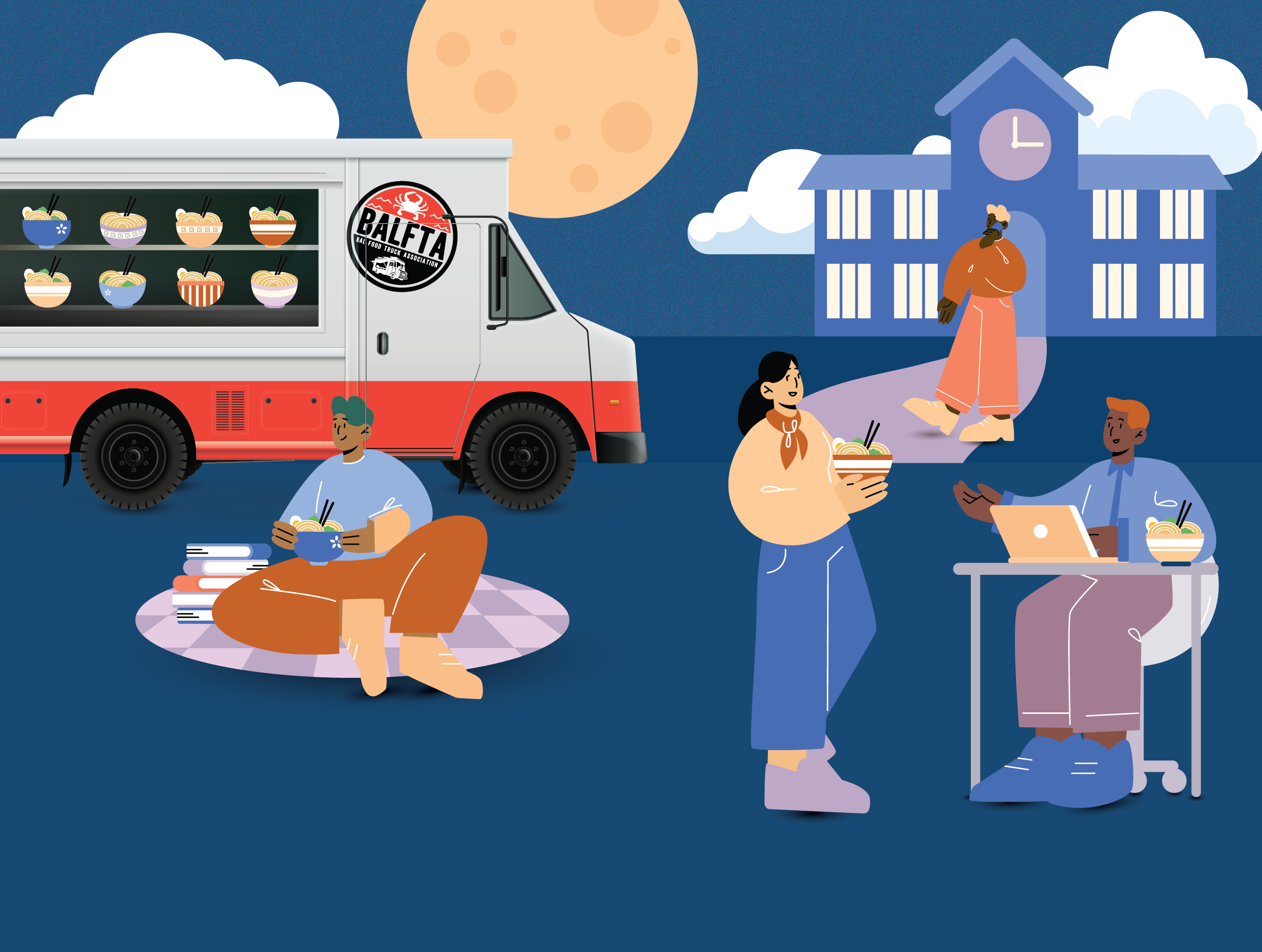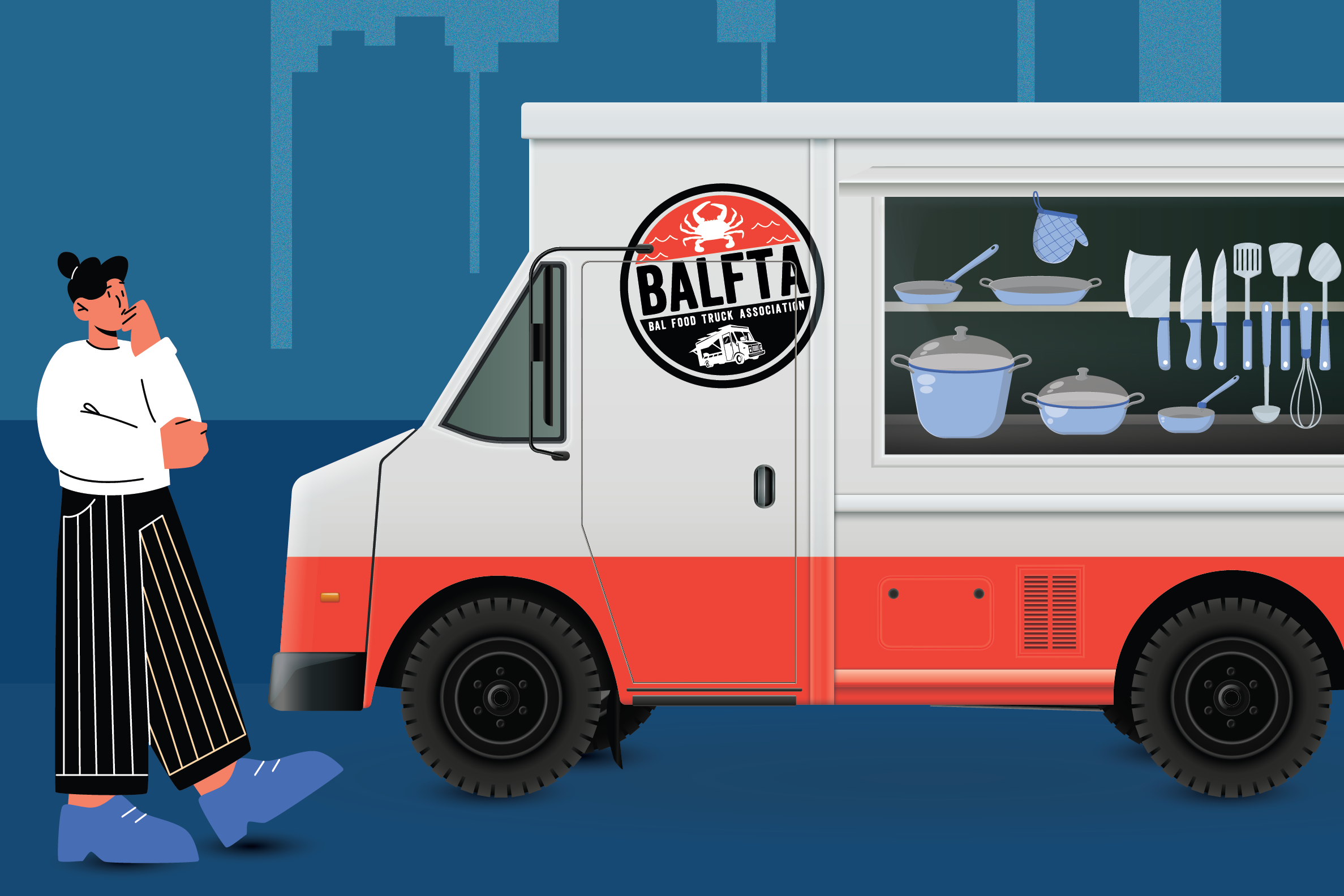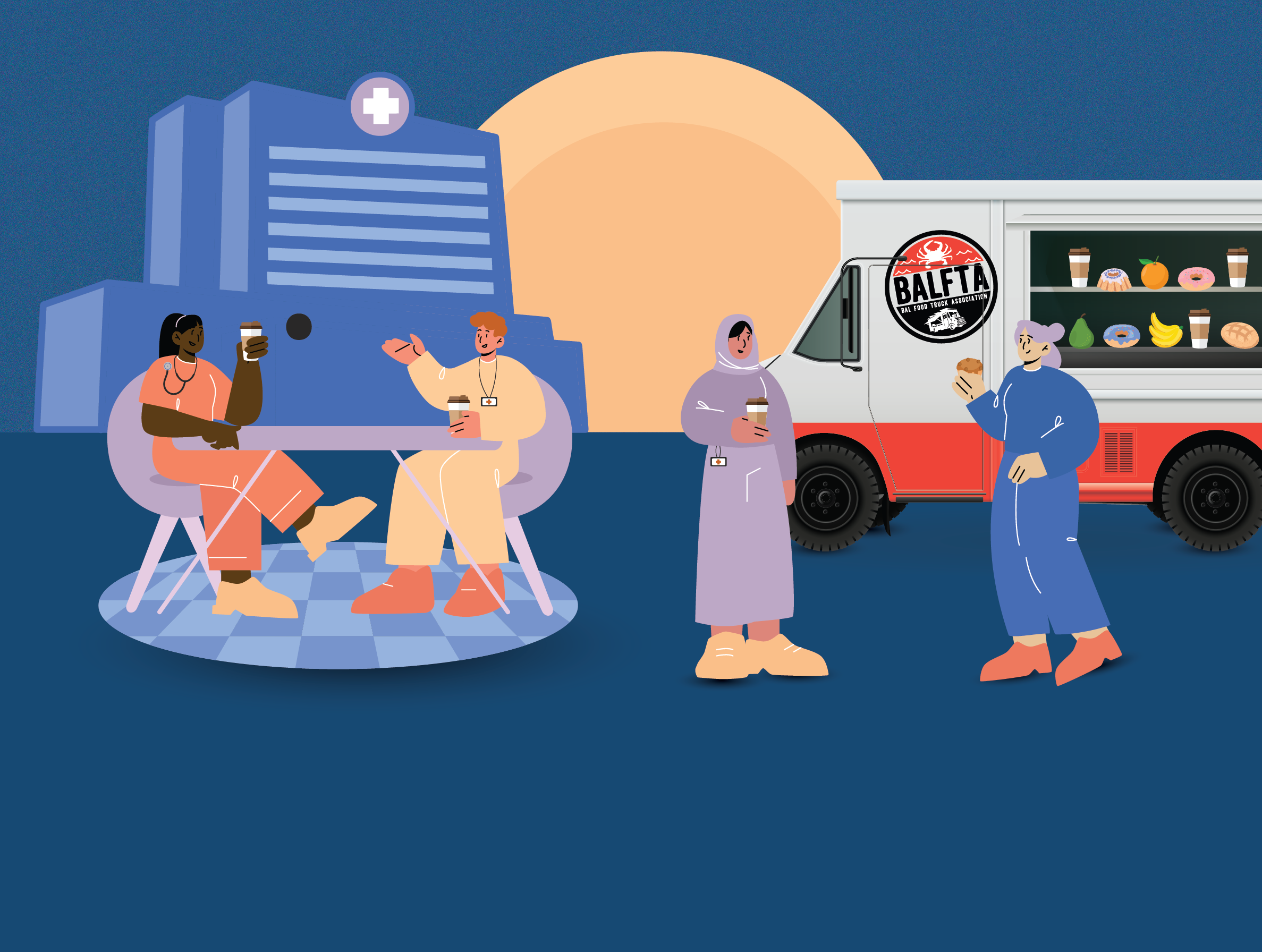Permits and Licenses (2026)
permits and licenses needed for food trucks in baltimore, maryland (2026 update)
I. State-Level Business Registration
This is the foundational legal setup for your business, required before you can apply for city permits:
1. Business Registration: Register your business entity (e.g., LLC, Sole Proprietorship) with the State of Maryland using the Maryland Business Express website.
2. Employer Identification Number (EIN): Obtain an EIN from the IRS. This is a federal requirement for tax purposes and is necessary for hiring employees and opening a business bank account.
3. Maryland Seller's Permit: This permit is issued by the Comptroller of Maryland. It is mandatory for any business selling tangible goods and authorizes you to collect and remit Maryland's 6% sales tax on food and beverages. (Sales and Use Tax, n.d.)
4. Maryland Tax Accounts: When registering with the state, set up various business tax accounts, such as an unemployment insurance account if you have employees.
primary operating permits
II. Core Baltimore City Operating Permits
A. Mobile Food Vendor License: This essential permit is managed by the Baltimore City Board of Licenses for Street Vendors. (Street and Mobile Vending, n.d.)
Application: Requires a non-refundable application fee (approx. $25) and a notarized application.
B. License Classes: The fee and operating area depend on the license class. For example, a Class A license allows operation in the downtown area for a higher fee (approx. $375), while a Class B license is for areas outside downtown and costs less (approx. $75).
(Baltimore City Board of Licenses for Street Vendors, 2025; Baltimore City Code, Article 15, § 13-4).
C. Health Department Food License: The Baltimore City Health Department's Food Control Section issues this license after your truck and processes are approved.
- Inspection: Requires a plan review and a pre-operational inspection (with a fee of approx. $150). Inspectors will conduct unannounced, routine inspections (at least annually) once you are operating. (Baltimore City Health Department, Food Control Section; Baltimore City Health Code, Title 6, Subtitle 3).
D. HACCP Plan: You will likely need to submit a Hazard Analysis Critical Control Point (HACCP) plan, which details how you will handle, prepare, and store food safely.
Sticker: Upon passing inspection, you will receive your license and an orange sticker that must be prominently displayed on your truck.
E. Fire Permit: The Baltimore City Fire Department will issue a fire certificate after inspecting and approving your truck's safety systems. This is a highly detailed inspection based on the National Fire Protection Association (NFPA) code.
Key requirements include:
1. Fire Suppression System: A UL-300 compliant automatic fire suppression system is mandatory for any grease-producing cooking equipment (fryers, griddles, charbroilers). This system must be inspected by a certified professional every six months.
2. Fire Extinguishers: You must have at least one Class K portable fire extinguisher (for grease/oil fires) and other appropriate extinguishers (e.g., Class ABC).
3. Propane Safety: All LP gas cylinders must be securely mounted on the outside of the vehicle, and the system must include a UL-listed propane leak detector.
4. Staff Training: Demonstrate that your staff is trained in emergency procedures, including how to use the fire extinguishers and activate the fuel shut-off.
facility, vehicle, and equipment requirements
III. Facility, Vehicle & Equipment Requirements
These are the physical standards your truck and base of operations must meet. Commissary Agreement: You must have a formal, signed agreement with a licensed commercial kitchen (commissary). This is a non-negotiable requirement for your health permit (Baltimore City Health Department, Food Control Section; Baltimore City Health Code, Article 7, § 7-104).
The commissary serves as your base for:
1. Food preparation and storage (which cannot be done on the truck), filling your truck's potable water tanks, and safely disposing of gray water (from sinks) and grease.
2. Cleaning and sanitizing the truck and equipment.
Vehicle and Equipment Standards: Your truck must be built to commercial standards.
3. Construction: All interior surfaces (walls, floors, counters) must be smooth, non-absorbent, and easily washable.
4. Equipment: All food equipment (refrigerators, freezers, cooking appliances) must be NSF-certified (or equivalent) for commercial use (Baltimore City Health Code, Title 6, § 6-305; Maryland COMAR 10.15.03.14).
5. Sinks: Provide separate sinks for hand-washing and for dish/utensil washing, with hot and cold running water.
6. Commercial Driver's License (CDL): A standard driver's license is often not sufficient. A Class B CDL from the
7. Maryland MVA is required if your single vehicle has a Gross Vehicle Weight Rating (GVWR) of 26,001 pounds or more. Many larger, fully equipped food trucks meet or exceed this weight limit. (Maryland Motor Vehicle Administration, CDL Requirements; 49 CFR § 383.91; Maryland Transportation Article § 16-104.1).
STAFF AND OPERATIONAL REQUIREMENTS
IV. Staff & Operational Requirements
These are the ongoing rules for your employees and business operations.
A. Certified Food Manager (CFM): At least one person on your staff, typically a manager or owner, must have a certification.
1. Food Manager certification (such as ServSafe). This person is responsible for overseeing food safety compliance.
2. Business Insurance: You are required to have specific insurance policies in place.
3. Commercial Vehicle Insurance: This policy must meet Maryland's state minimums, including bodily injury, property damage, and personal injury.
4. Protection (PIP), and uninsured/underinsured motorist coverage.
5. Business Liability Insurance: General liability insurance is essential to protect your business from claims arising from your operations (e.g., a customer becomes ill or is injured).
6. Workers' Compensation Insurance: This is a mandatory requirement if you have any employees, including part-time staff. It covers medical costs and lost wages if an employee is injured on the job. Failure to carry this can result in fines up to $10,000.
Location Rules & Special Events
V. Location Rules & Special Events
These rules dictate where and when you can legally park and sell.
1. Parking and Zoning: Parking anywhere is not allowed. Operate from city-approved designated mobile vending spots or on private property with the owner's permission and proper zoning.
2. Prohibited Zones: Baltimore City enforces strict location restrictions. You are not permitted to operate in these zones.
3. The 300-Foot Rule: Within 300 feet of a brick-and-mortar business that sells a similar product (e.g., a taco truck near a taco restaurant). This rule was legally challenged but was reinstated by the
Maryland Court of Special Appeals in 2019 and is in effect (Baltimore City Code, Article 15, § 13-7; Pizza di Joey, LLC v. Mayor & City Council of Baltimore, 241 Md. App. 1, 206 A.3d 336 (2019).
Schools: Within 2 blocks of any K-12 school during operating hours (typically 7 a.m. to 8 p.m.).
4. City Markets: Within 2 blocks of designated public markets (e.g., Cross Street Market, Broadway Market).
Hours: Operations are generally prohibited during late-night hours (e.g., 12 midnight to 6 a.m.). (Baltimore City Code, Article 15, § 13-9; Baltimore City Board of Licenses for Street Vendors, Operating Hours Restrictions).
5. Special Event Permits: To vend at a festival, fair, or other temporary event, you must be listed as an approved vendor on the event's primary special event permit.
6. Sponsorship: Events in the downtown district or Inner Harbor often require sponsorship from the Downtown Partnership or Waterfront Partnership, respectively.
7. Alcohol License: A separate liquor license is required if you intend to sell alcohol. These are highly regulated and difficult to obtain for a mobile unit, often being restricted to specific, permitted special events. (Maryland Alcohol and Tobacco Commission; Baltimore City Liquor Board; Md. Code Ann., Bus. Reg. §§ 16-101 et seq.).
Ongoing Compliance & Taxes
VI. Ongoing Compliance & Taxes
Operating your business doesn't end after you get your permits.
1. Sales Tax Remittance: You must accurately track, collect, and remit the 6% Maryland sales tax (and any other local food taxes) to the Comptroller of Maryland regularly (usually monthly or quarterly). (Maryland Comptroller, Sales and Use Tax Division; Maryland Tax-General Article § 11-401; COMAR 03.06.01.33).
2. Routine Inspections: Be prepared for unannounced, routine inspections from the Health Department and the Fire Marshal to ensure you maintain compliance with all food safety and fire codes.
3. License Renewals: All your state and city licenses (Mobile Vendor, Health Permit, Seller's Permit, business registration) have expiration dates and must be renewed on time, which typically involves paying an annual fee. The city health license, for example, runs on a fiscal year from July 1st to June 30th.



